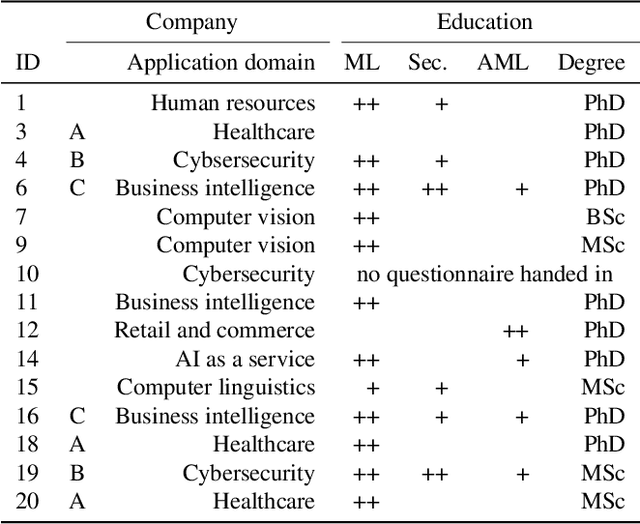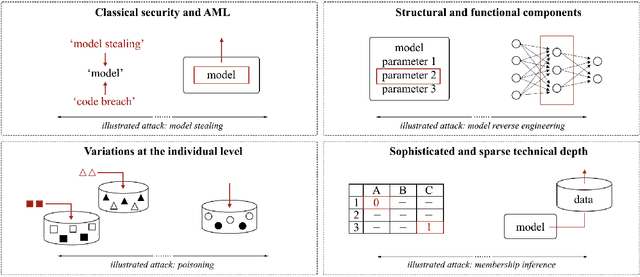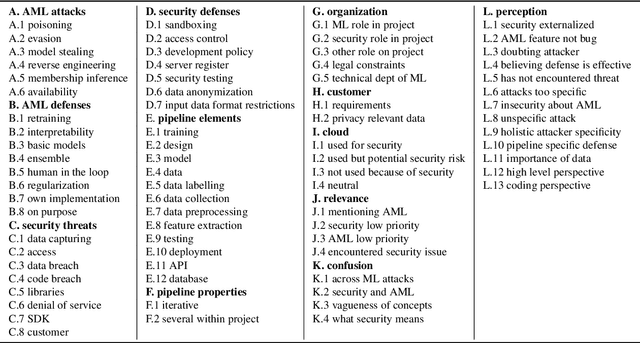Mental Models of Adversarial Machine Learning
Paper and Code
May 08, 2021



Although machine learning (ML) is widely used in practice, little is known about practitioners' actual understanding of potential security challenges. In this work, we close this substantial gap in the literature and contribute a qualitative study focusing on developers' mental models of the ML pipeline and potentially vulnerable components. Studying mental models has helped in other security fields to discover root causes or improve risk communication. Our study reveals four characteristic ranges in mental models of industrial practitioners. The first range concerns the intertwined relationship of adversarial machine learning (AML) and classical security. The second range describes structural and functional components. The third range expresses individual variations of mental models, which are neither explained by the application nor by the educational background of the corresponding subjects. The fourth range corresponds to the varying levels of technical depth, which are however not determined by our subjects' level of knowledge. Our characteristic ranges have implications for the integration of AML into corporate workflows, security enhancing tools for practitioners, and creating appropriate regulatory frameworks for AML.
 Add to Chrome
Add to Chrome Add to Firefox
Add to Firefox Add to Edge
Add to Edge